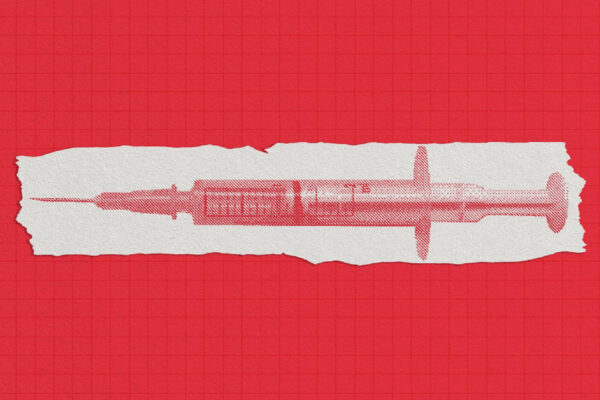The American Civil Liberties Union of Indiana filed a lawsuit today on behalf of Death Penalty Action, Indiana Abolition Coalition, Sisters of Providence of Saint-Mary-of-the-Woods Indiana, and individuals who protested and stood vigil in opposition to the July executions at Terre Haute Prison. Indiana State Police (ISP) put significant barriers in place ahead of the executions, forcing demonstrators to protest nearly two miles away from the prison.
Protesters planned to hold vigils at the time of the executions immediately outside the gates of the federal prison in Terre Haute Indiana, but prior to the July executions, ISP erected barricades and closed the roads leading to the prison, forcing protesters to stay almost two miles from the entrance of the prison. The lawsuit claims these restrictions violate the protesters’ First Amendment rights.
The only other option for protesters to get close to the facility, was to be bussed into a fenced-in area on prison grounds. The area would have been far removed from the death chamber and would have required protesters to stay for an unknown amount of time, with little shelter in extreme heat, until the execution occurred.
The lawsuit requests that the U.S. District Court of Southern Indiana enter a preliminary injunction allowing the organizations and individual plaintiffs to engage in protests immediately outside of the main entrance of Terre Haute Prison. The plaintiffs plan to protest at several executions which are scheduled for August and September.
Statement from Ken Falk, legal director at the ACLU of Indiana:
“These restrictions obstruct one of the most fundamental rights protected by the Constitution, political speech. There is absolutely no justification for this overly broad ‘no-protest zone.’ The Indiana State Police are severely compromising protesters’ ability to express themselves and to express their opposition to the death penalty while in sight of the prison.”
Statement from Abraham J. Bonowitz, co-director at Death Penalty Action:
“Donald Trump wants these executions to go forward because he thinks he can use them in his campaign, and he wants to stop people from exercising their First Amendment rights because he can’t stand dissent. It’s all anti-American, and it all must stop.”
Statement from Stephanie Quiring, President of the Indiana Abolition Coalition Board of Directors:
“The Indiana Abolition Coalition seeks to end the death penalty in Indiana and beyond. IAC members have long stood in protest and vigil at execution sites. The US federal government's decision to resume executions in July, and carry out three over the course of only five days, is abhorrent. Through this lawsuit, IAC joins with other members of our Indiana communities to protect our right to bear witness to these executions and bring attention to the government's actions behind prison walls.”
Statement from Ashley Eve, advisory board member at Death Penalty Action:
"I am beyond proud to stand with some of the most powerful leaders in the anti-death penalty movement to ensure that our rights to protest federal executions are not violated in the future. Given the recent announcement of more executions, which if carried out would exponentially increase the number of citizens executed by the Federal Government, it is even more important for us to be able to use our voices, and stand together to oppose these unnecessary killings. These killings are in the names of citizens, and the Constitution protects We the People. Because of this lawsuit, it will forever be on record that these executions will never be in our name."
Statement from Sisters of Providence of Saint-Mary-of-the-Woods Indiana:
"The Indiana State Police erected barriers that forced us almost two miles away from the prison entrance, thus compromising our ability to express our opposition to capital punishment. We will continue to pray for death row inmates and their families, for all victims and their families, and for legislators, who hold in their hands the life or death of these inmates."
Stay Informed
Sign up to be the first to hear about how to take action.
By completing this form, I agree to receive occasional emails per the terms of the ACLU’s privacy statement.
By completing this form, I agree to receive occasional emails per the terms of the ACLU’s privacy statement.

